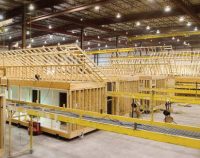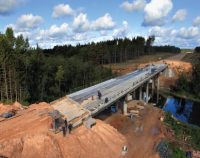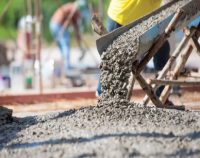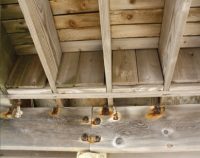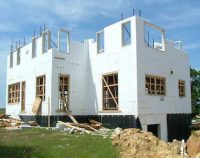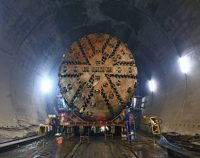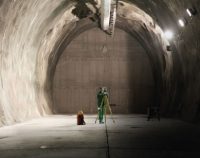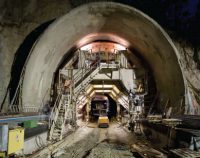Showing 1–20 of 44 results
Bridge Steels and their Mechanical Properties: 4 PDH
$24.00 Add to cartIn this course the student will gain a comprehensive understanding of the types, properties, manufacturing processes, and performance characteristics of structural steels used in bridge construction. They will understand how various steel grades are selected based on mechanical properties, environmental conditions, and fabrication needs.Instructor: Raymond Bosek, PESPECIFIC KNOWLEDGE OR SKILL OBTAINED
This course teaches the following specific knowledge and skills:
- Identify and differentiate various grades of bridge steel, especially those covered under the ASTM A709 specification.
- Explain the mechanical behaviors of bridge steels, including stress-strain response, ductility, hardness, and fracture toughness.
- Describe steel manufacturing processes and their influence on the final mechanical properties and uniformity of bridge steels.
- Evaluate the corrosion resistance and service conditions that influence the choice of weathering versus non-weathering steels.
- Assess the weldability and fabrication techniques applicable to different grades of bridge steel, including cutting, bending, and machining.
- Interpret applicable AASHTO and ASTM standards to ensure compliance and best practices in bridge design and steel selection.
CERTIFICATE OF COMPLETION
You will be able to immediately print a certificate of completion after passing a 20 question multiple-choice quiz. The quiz can be retaken unlimited times until a passing grade of 70% or better is earned. This course satisfies four (4) hours of professional development (PDH).
Preview CourseClick “Preview Course” to view prior to purchaseClick “Add to Cart” to purchaseCorrosion Protection of Steel Bridges: 5 PDH
$30.00 Add to cartIn this course the student will understand the principles, materials, environmental factors, and design strategies necessary to mitigate corrosion in steel bridge structures. They will develop a comprehensive knowledge of corrosion mechanisms, protection systems, and performance evaluation.Instructor: Raymond Bosek, PESPECIFIC KNOWLEDGE OR SKILL OBTAINED
This course teaches the following specific knowledge and skills:
- Identify environmental factors affecting steel bridge corrosion.
- Evaluate materials used for corrosion protection in bridges.
- Compare coating systems for their durability and cost.
- Analyze historical performance of various corrosion mitigation strategies.
- Apply design considerations for corrosion-prone structural components.
- Select corrosion protection systems based on site-specific exposure.
CERTIFICATE OF COMPLETION
You will be able to immediately print a certificate of completion after passing a 20 question multiple-choice quiz. The quiz can be retaken unlimited times until a passing grade of 70% or better is earned. This course satisfies five (5) hours of professional development (PDH).
Preview CourseClick “Preview Course” to view prior to purchaseClick “Add to Cart” to purchaseIntroduction to Composite Materials: 3 PDH
$18.00 Add to cartIn this course the student will understand the fundamental concepts, structures, classifications, and applications of composite materials. They will learn how different fibre and matrix combinations influence properties, and they will grasp the benefits and limitations of thermoset and thermoplastic composites as well as reinforcement mechanisms.Instructor: Seth Grablow, PESPECIFIC KNOWLEDGE OR SKILL OBTAINED
This course teaches the following specific knowledge and skills:
- Define composite materials and their constituent components.
- Compare thermoset and thermoplastic matrices.
- Classify common fibre reinforcements and their uses.
- Describe composite processing and manufacturing techniques.
- Analyze mechanical properties of composites.
- Identify applications across multiple engineering sectors.
CERTIFICATE OF COMPLETION
You will be able to immediately print a certificate of completion after passing a 15 question multiple-choice quiz. The quiz can be retaken unlimited times until a passing grade of 70% or better is earned. This course satisfies three (3) hours of professional development (PDH).
Preview CourseClick “Preview Course” to view prior to purchaseClick “Add to Cart” to purchaseLightning Protection Design and Standards: 5 PDH
$30.00 Add to cartIn this course the student will understand the principles, standards, risks, and design methods of lightning protection systems, including external and internal protection strategies, materials selection, and risk assessment based on IEC 62305 standards.Instructor: Juan Pesante, PESPECIFIC KNOWLEDGE OR SKILL OBTAINED
This course teaches the following specific knowledge and skills:
- Explain lightning physics and flash mechanics.
- Apply IEC 62305 lightning protection standards.
- Design air-termination and grounding systems.
- Evaluate lightning risks using risk management frameworks.
- Select appropriate materials for lightning protection systems.
- Integrate surge protection devices into power systems.
CERTIFICATE OF COMPLETION
You will be able to immediately print a certificate of completion after passing a 20 question multiple-choice quiz. The quiz can be retaken unlimited times until a passing grade of 70% or better is earned. This course satisfies five (5) hours of professional development (PDH).
Preview CourseClick “Preview Course” to view prior to purchaseClick “Add to Cart” to purchaseContinuously Reinforced Concrete Pavement: 5 PDH
$30.00 Add to cartIn this course the student will understand the design, construction, maintenance, and rehabilitation of Continuously Reinforced Concrete Pavement (CRCP). They will grasp the critical principles governing CRCP performance, including crack control, reinforcement detailing, and the role of materials and environmental conditions in long-term pavement behavior.Instructor: Raymond Bosek, PESPECIFIC KNOWLEDGE OR SKILL OBTAINED
This course teaches the following specific knowledge and skills:
- Describe the fundamental principles and behaviors of CRCP, including its cracking mechanisms and performance indicators
- Apply mechanistic-empirical pavement design methods for determining optimal slab thickness and reinforcement layout
- Select and justify appropriate materials, reinforcement types, and base layers to enhance pavement durability and minimize distress
- Implement best practices in the construction of CRCP, including reinforcement placement, paving, and curing techniques
- Evaluate pavement condition using performance metrics such as crack width, spacing, punchouts, and roughness
- Develop maintenance, repair, and rehabilitation strategies for aging CRCP structures to extend their service life
CERTIFICATE OF COMPLETION
You will be able to immediately print a certificate of completion after passing a 20 question multiple-choice quiz. The quiz can be retaken unlimited times until a passing grade of 70% or better is earned. This course satisfies five (5) hours of professional development (PDH).
Preview CourseClick “Preview Course” to view prior to purchaseClick “Add to Cart” to purchaseCuring of Portland Cement Concrete Pavements: 4 PDH
$24.00 Add to cartIn this course the student will gain detailed, research-based guidance on the curing process for concrete pavements, including pre-construction planning, methods of curing (initial and final), material selection, environmental considerations, and techniques to verify curing effectiveness. It emphasizes best practices to ensure long-term pavement performance and reduce early-life concrete distress.Instructor: Raymond Bosek, PESPECIFIC KNOWLEDGE OR SKILL OBTAINED
This course teaches the following specific knowledge and skills:
- Explain the role of curing in achieving durable and strong concrete pavement, and identify consequences of inadequate curing.
- Distinguish between the initial and final curing periods and describe their specific requirements and timing.
- Evaluate environmental and material conditions that influence curing needs, including bleeding rates, evaporation rates, and concrete temperature.
- Apply appropriate curing techniques—such as curing compounds, water-based methods, and sheet materials—based on project-specific conditions.
- Identify factors contributing to plastic shrinkage and thermal cracking, and implement corrective actions to mitigate these issues during paving.
- Verify curing effectiveness through practical methods, including visual inspection, reflectometry, and temperature/moisture measurement tools.
CERTIFICATE OF COMPLETION
You will be able to immediately print a certificate of completion after passing a 20 question multiple-choice quiz. The quiz can be retaken unlimited times until a passing grade of 70% or better is earned. This course satisfies four (4) hours of professional development (PDH).
Preview CourseClick “Preview Course” to view prior to purchaseClick “Add to Cart” to purchaseRoller-Compacted Concrete : 5 PDH
$30.00 Add to cartIn this course the student will understand the principles, methods, and considerations involved in the use of roller-compacted concrete (RCC) for civil works structures, particularly dams. They will gain foundational knowledge of material properties, mix design, construction techniques, and quality assurance protocols essential to RCC implementation.Instructor: Raymond Bosek, PESPECIFIC KNOWLEDGE OR SKILL OBTAINED
This course teaches the following specific knowledge and skills:
- Define roller-compacted concrete and distinguish it from conventional concrete and embankment materials in terms of composition and application
- Evaluate the suitability of materials, including aggregates, cementitious substances, and admixtures, for RCC construction
- Design RCC mixture proportions to meet structural and performance criteria based on strength, durability, and workability requirements
- Apply best practices for RCC placement, compaction, and construction using specialized equipment and techniques
- Implement quality assurance and quality control procedures throughout the RCC construction process
- Analyze the performance of RCC structures post-construction with respect to watertightness, durability, and structural integrity
CERTIFICATE OF COMPLETION
You will be able to immediately print a certificate of completion after passing a 20 question multiple-choice quiz. The quiz can be retaken unlimited times until a passing grade of 70% or better is earned. This course satisfies five (5) hours of professional development (PDH).
Preview CourseClick “Preview Course” to view prior to purchaseClick “Add to Cart” to purchaseUltra-High Performance Concrete (UHPC): 4 PDH
$24.00 Add to cartIn this course the student will understand the unique properties, design implications, and practical applications of Ultra-High Performance Concrete (UHPC), particularly in bridge infrastructure. They will grasp how UHPC differs from conventional concrete, including its superior strength, durability, and performance in extreme conditions.Instructor: Raymond Bosek, PESPECIFIC KNOWLEDGE OR SKILL OBTAINED
This course teaches the following specific knowledge and skills:
- Differentiate UHPC from conventional and high-performance concretes in terms of material composition, mechanical strength, and durability.
- Analyze the mechanical properties of UHPC, including compressive and tensile strengths, modulus of elasticity, and fatigue behavior.
- Design structural elements using UHPC by applying appropriate load resistance principles and reinforcement strategies.
- Evaluate the curing, mixing, and placement methods critical to achieving UHPC’s optimal performance in the field.
- Assess the long-term durability of UHPC in various environmental conditions including freeze-thaw cycles, marine exposure, and fire resistance.
- Identify current and potential applications of UHPC in infrastructure projects worldwide, with an emphasis on bridge engineering.
CERTIFICATE OF COMPLETION
You will be able to immediately print a certificate of completion after passing a 20 question multiple-choice quiz. The quiz can be retaken unlimited times until a passing grade of 70% or better is earned. This course satisfies four (4) hours of professional development (PDH).
Preview CourseClick “Preview Course” to view prior to purchaseClick “Add to Cart” to purchaseAdvanced Fabricated Building: 6 PDH
$36.00 Add to cartIn this course the student will understand the building requirements of manufactured structures, particularly residential homes in Florida, as well as understand the various fabrication materials used for other advanced building projects. Instructor: Raymond Bosek, PESPECIFIC KNOWLEDGE OR SKILL OBTAINED
This course teaches the following specific knowledge and skills:
- Discuss building codes & HUD codes for fabricated structures
- Understand the materials & products of manufactured buildings
- Discuss systems & systems testing of manufactured buildings
- Explain the various fabrication products for advanced construction
- Discuss the benefits and drawbacks of each of these fabrication products
CERTIFICATE OF COMPLETION
You will be able to immediately print a certificate of completion after passing a 20 question multiple-choice quiz. The quiz can be retaken unlimited times until a passing grade of 70% or better is earned. This course satisfies six professional development hours (PDH) of continuing education.
Preview CourseClick “Preview Course” to View Prior to PurchaseClick “Add to Cart” to Purchase and Access QuizApproach Roadway Deformations: 4 PDH
$24.00 Add to cartIn this course the student will understand roadway approach embankment design and construction and methods to mitigate deformations typically seen in these structure, including the infamous “bump” encountered at the approach to structure interface.Instructor: Raymond Bosek, PESPECIFIC KNOWLEDGE OR SKILL OBTAINED
This course teaches the following specific knowledge and skills:
- Explain typical approach roadway deformation problems
- Discuss internal and external deformation
- Understand computation of immediate and consolidation settlements
- Explain deformation design solutions
- Understand construction monitoring and quality assurance
CERTIFICATE OF COMPLETION
You will be able to immediately print a certificate of completion after passing a 20 question multiple-choice quiz. The quiz can be retaken unlimited times until a passing grade of 70% or better is earned. This course satisfies four (4) hours of professional development (PDH).
Preview CourseClick “Preview Course” to view prior to purchaseClick “Add to Cart” to purchaseConcrete Construction: 6 PDH
$36.00 Add to cartMore concrete is used than any other man-made material in the world, about seven billion cubic meters of concrete – more than one cubic meter for every person on Earth.
Concrete is one of the most important construction materials. It is comparatively economical, easy to make, offers continuity and solidity, and will bond with other materials.
In this course the student will understand essentially all aspects of concrete construction including characteristics, mix design, formwork, joints, placement, finishing, and pre-cast. Instructor: Raymond Bosek, PESPECIFIC KNOWLEDGE OR SKILL OBTAINED
This course teaches the following specific knowledge and skills:
- Define characteristics of concrete
- Identify ingredients essential for good concrete
- Calculate concrete mix designs
- Determine methods and mixing times of concrete
- Describe the types of concrete forms and their construction
- Determine the types of ties for and placement of reinforcing steel
- Determine the location of construction joints
- Determine proper occasions for using the concrete saw
- Describe the proper procedures for placing concrete
- Describe the methods available for consolidating concrete
- Describe the finishing process for the final concrete surface
- Determine projects suitable for and lifting methods necessary for precast and tilt-up construction
CERTIFICATE OF COMPLETION
You will be able to immediately print a certificate of completion after passing a 21 question multiple-choice quiz. The quiz can be retaken unlimited times until a passing grade of 70% or better is earned. This course satisfies six professional development hours (PDH) of continuing education.
Preview CourseClick “Preview Course” to View Prior to PurchaseClick “Add to Cart” to Purchase and Access QuizConstruction Site Safety: 0.5 PDH
$6.00Original price was: $6.00.$0.00Current price is: $0.00. Add to cartIn this course the student will study the top ten construction site safety hazards. The student will understand the most common construction site safety hazards and the methods to mitigate these hazards to increase safety for all personnel.Instructor: Raymond Bosek, PEIn this course the student will study the top ten construction site safety hazards. The student will understand the most common construction site safety hazards and the methods to mitigate these hazards to increase safety for all personnel.
SPECIFIC KNOWLEDGE OR SKILL OBTAINED
This course teaches the following specific knowledge and skills:
- Identify common construction site hazards
- Discuss safety practices to decrease hazard risks
- Explain guidelines to increase hazard awareness and prevent accidents
- Discuss Personal Protective Equipment (PPE) and its uses
- Understand Hazard communication
- Utilize Safety Checklists
CERTIFICATE OF COMPLETION
You will be able to immediately print a certificate of completion after passing a 10 question multiple-choice quiz. The quiz can be retaken unlimited times until a passing grade of 70% or better is earned. This course satisfies 0.5 professional development hours (PDH) of continuing education.
Preview CourseClick “Preview Course” to View Prior to PurchaseClick “Add to Cart” to Purchase and Access QuizCorrosion Protection for Metal Fasteners in Coastal Areas: 3 PDH
$18.00 Add to cartIn this online course a student will understand material design and selection of metal fasteners and connectors on structures in coastal areas for increased corrosion-resistance.Instructor: Raymond Bosek, PESPECIFIC KNOWLEDGE OR SKILL OBTAINED
This course teaches the following specific knowledge and skills:
- Discuss the importance of using corrosion-resistant metal connectors and fasteners in coastal areas
- Discuss regulations and codes in corrosion resistance material selection for fasteners
- Explain the causes of corrosion in coastal areas
- Understand types of corrosion-resistant metal connectors and fasteners
- Explain best practices for corrosion resistance
CERTIFICATE OF COMPLETION
You will be able to immediately print a certificate of completion after passing a fifteen (15) question multiple-choice quiz. The quiz can be retaken unlimited times until a passing grade of 70% or better is earned. This course satisfies three (3) continuing education hour (CEH)/professional development hour (PDH) of continuing education.
Preview CourseClick” Preview Course” to View Prior to PurchaseClick “Add to Cart” to Purchase and Access QuizCost Benefit of ICF: 2 PDH
$12.00 Add to cartThis online course is based on a guide that provides cost comparisons of ICF construction to standard residential wood-frame construction, a comprehensive cost analysis of the monthly costs of home ownership for wood-frame and ICF homes, and a detailed discussion regarding many of the structural and energy performance benefits gained through the use of ICFs.Instructor: Raymond Bosek, PEThis online course is based on a guide that provides cost comparisons of ICF construction to standard residential wood-frame construction, a comprehensive cost analysis of the monthly costs of home ownership for wood-frame and ICF homes, and a detailed discussion regarding many of the structural and energy performance benefits gained through the use of ICFs.
The student must take a multiple-choice quiz consisting of ten (10) questions at the end of this course to earn PDH credits.
SPECIFIC KNOWLEDGE OR SKILL OBTAINED
This course teaches the following specific knowledge and skills:
- Become familiar with ICF construction
- Be made aware of the many benefits gained through the use of ICF construction
- Comparative performance and cost comparison of ICF home vs wood frame home
- Structral safety and hazard mitigation
- Energy cost comparison of ICF home
CERTIFICATE OF COMPLETION
You will be able to immediately print a certificate of completion after passing a 10 question multiple-choice quiz. The quiz can be retaken unlimited times until a passing grade of 70% or better is earned. This course satisfies 2 professional development hours (PDH) of continuing education.
Preview CourseClick “Preview Course” to View Prior to PurchaseClick “Add to Cart” to Purchase and Access QuizDeck Design for Steel Bridges: 4 PDH
$24.00 Add to cartIn this course the student will understand design options & methods for various steel bridge deck types such as concrete deck slabs, metal grid decks, orthotropic steel decks, wood decks, and several others. Instructor: Raymond Bosek, PESPECIFIC KNOWLEDGE OR SKILL OBTAINED
This course teaches the following specific knowledge and skills:
- Explain analysis and design methods of concrete decks
- Understand the different types of precast deck slabs and placement sequence
- Describe formwork and methods
- Describe metal grid decks and design considerations
- Understand design & construction methods of metal grid decks
- Describe orthotropic steel decks and design considerations
- Understand design & construction methods of orthotropic steel decks
- Explain wood decks and the various types
- Describe other types of deck systems and design consideration
CERTIFICATE OF COMPLETION
You will be able to immediately print a certificate of completion after passing a 21 question multiple-choice quiz. The quiz can be retaken unlimited times until a passing grade of 70% or better is earned. This course satisfies four professional development hours (PDH) of continuing education.
Preview CourseClick “Preview Course” to View Prior to PurchaseClick “Add to Cart” to Purchase and Access QuizDesign and Construction of Road Tunnels-Part 1 Planning: 5 PDH
$30.00 Add to cartIn this course the student will come to understand a general overview of the planning process of a road tunnel project, geometrical requirements and recommendations of new road tunnels, investigative techniques and parameters required for planning, construction and design of road tunnels, and the different types of reports required for a road tunnel project.Instructor: Raymond Bosek, PEIn this course the student will come to understand a general overview of the planning process of a road tunnel project, geometrical requirements and recommendations of new road tunnels, investigative techniques and parameters required for planning, construction and design of road tunnels, and the different types of reports required for a road tunnel project.SPECIFIC KNOWLEDGE OR SKILL OBTAINED
This course teaches the following specific knowledge and skills:
- General tunnel design parameters
- Alternative analyses
- Tunnel studies
- Operation and financial planning
- Geometric configurations
- Geotechnical investigations
- Geotechnical Reports
CERTIFICATE OF COMPLETION
You will be able to immediately print a certificate of completion after passing a 30 question multiple-choice quiz. The quiz can be retaken unlimited times until a passing grade of 70% or better is earned. This course satisfies five (5) professional development hours (PDH) of continuing education.
Preview CourseClick “Preview Course” to View Prior to PurchaseClick “Add to Cart” to Purchase and Access QuizDesign and Construction of Road Tunnels-Part 2 Methodology and Excavation Support: 5 PDH
$30.00 Add to cartIn this course the student will understand the construction methodology and excavation support systems for cut-and-cover road tunnels, design and construction issues for rock and soft ground tunneling, and the special approaches that must be made when passing through difficult ground.Instructor: Raymond Bosek, PEIn this course the student will understand the construction methodology and excavation support systems for cut-and-cover road tunnels, design and construction issues for rock and soft ground tunneling, and the special approaches that must be made when passing through difficult ground.SPECIFIC KNOWLEDGE OR SKILL OBTAINED
This course teaches the following specific knowledge and skills:
- Cut and cover tunnels
- Rock Tunneling
- Softground tunneling
- Difficult ground tunneling
- Structural design and subsystems
- Groundwater control
- Tunnel support design
- Permanent lining design
- Soil stabilization
- Instability and heaving loads
CERTIFICATE OF COMPLETION
You will be able to immediately print a certificate of completion after passing a 30 question multiple-choice quiz. The quiz can be retaken unlimited times until a passing grade of 70% or better is earned. This course satisfies five (5) professional development hours (PDH) of continuing education.
Preview CourseClick “Preview Course” to View Prior to PurchaseClick “Add to Cart” to Purchase and Access QuizDesign and Construction of Road Tunnels-Part 3 Design and Detailing: 5 PDH
$30.00 Add to cartIn this course the student will understand the concepts of the sequential excavation method as well as the design, purpose and construction of tunnel linings, immersed tunnels, and jacked box tunnels.Instructor: Raymond Bosek, PEIn this course the student will understand the concepts of the sequential excavation method as well as the design, purpose and construction of tunnel linings, immersed tunnels, and jacked box tunnelsSPECIFIC KNOWLEDGE OR SKILL OBTAINED
This course teaches the following specific knowledge and skills:
- Sequential excavation method
- Tunnel lining
- Immersed tunnels
- Jacked box tunneling
- Ground classsification
- Instrumentation and monitoring
- Construction methodolgies
- Ground control and watertightness
CERTIFICATE OF COMPLETION
You will be able to immediately print a certificate of completion after passing a 30 question multiple-choice quiz. The quiz can be retaken unlimited times until a passing grade of 70% or better is earned. This course satisfies five (5) professional development hours (PDH) of continuing education.
Preview CourseClick “Preview Course” to View Prior to PurchaseClick “Add to Cart” to Purchase and Access QuizDesign and Construction of Road Tunnels-Part 4 Obstacles and Mitigations: 5 PDH
$30.00 Add to cartIn this course the student will understand the reasons and methods to consider regarding seismic activity in the design process. The concepts of mined/bored tunnel construction engineering. Also, how to monitor the performance of the tunnel construction process, and how to identify, characterize and repair tunnels.Instructor: Raymond Bosek, PEIn this course the student will understand the reasons and methods to consider regarding seismic activity in the design process. The concepts of mined/bored tunnel construction engineering. Also, how to monitor the performance of the tunnel construction process, and how to identify, characterize and repair tunnels.SPECIFIC KNOWLEDGE OR SKILL OBTAINED
This course teaches the following specific knowledge and skills:
- Seismis considerations and evaluation
- Tunnel construction engineering
- Staging and sequencing
- Instrumentation
- Gorund movements and groundwater behavior
- Tunnel Rehabilation
- Structural and lining repairs
CERTIFICATE OF COMPLETION
You will be able to immediately print a certificate of completion after passing a 25 question multiple-choice quiz. The quiz can be retaken unlimited times until a passing grade of 70% or better is earned. This course satisfies five (5) professional development hours (PDH) of continuing education.
Preview CourseClick “Preview Course” to View Prior to PurchaseClick “Add to Cart” to Purchase and Access QuizDesign of Commercial Buildings to Mitigate Terrorist Attacks: 4 PDH
$24.00 Add to cartThis course provides guidance to engineers in methods to mitigate the effects of hazards resulting from terrorist attacks on new buildings. While focusing primarily on explosive attacks and design strategies to mitigate the effects of explosions, the course also addresses design strategies to mitigate the effects of chemical, biological and radiological attacks. In addition to the applicability to the design of new commercial office, retail, multi-family residential, and light-industrial buildings, many of the concepts presented are also applicable to other building types and/or existing buildings.Instructor: Raymond Bosek, PEThis course provides guidance to engineers in methods to mitigate the effects of hazards resulting from terrorist attacks on new buildings. While focusing primarily on explosive attacks and design strategies to mitigate the effects of explosions, the course also addresses design strategies to mitigate the effects of chemical, biological and radiological attacks. In addition to the applicability to the design of new commercial office, retail, multi-family residential, and light-industrial buildings, many of the concepts presented are also applicable to other building types and/or existing buildings.
SPECIFIC KNOWLEDGE OR SKILL OBTAINED
This course teaches the following specific knowledge and skills:
- Design strategies to enhance life safety of building occupants
- Incremental steps to produce fully developed security measures
- Multi-disciplinary approach to security design
- Complex trade-offs required when designing security into a building
CERTIFICATE OF COMPLETION
You will be able to immediately print a certificate of completion after passing a 20 question multiple-choice quiz. The quiz can be retaken unlimited times until a passing grade of 70% or better is earned. This course satisfies 4 professional development hours (PDH) of continuing education.
Preview CourseClick “Preview Course” to View Prior to PurchaseClick “Add to Cart” to Purchase and Access Quiz








